Better Lesson
Better Lesson: Miss Nelson Is Missing Key Details
Where did Miss Nelson go? We look at the key details in the text to determine what is happening throughout the story. Students will locate and record key details about story elements (characters, setting, problem, solution, and theme) in...
Better Lesson
Better Lesson: Plant Life Cycle Introduction
Sequencing is an important skill for kindergarten students. This lesson uses nonfiction texts to allow students to make a real-life connection to the skill of sequencing and learn about the plant cycle at the same time! Included are...
Better Lesson
Better Lesson: Conferencing
Editing is a step that can often be overlooked in Kindergarten; however, it is crucial that our young scholars understand how and why to go back and fix their writing! In this lesson, students will take suggestions from the teacher and...
CPALMS
Cpalms: Understanding Key Details by Using Pancakes for Breakfast
[Free Registration/Login Required] For this lesson, students will be read Pancakes for Breakfast by Tomie DePaola in order to understand and describe people, places, things and events in a text. They will create a book by drawing or...
Better Lesson
Better Lesson: Guess My Solid
Descriptive details are used as learners develop a guessing game poster for others to try and guess their chosen solid. Included in this detailed lesson plan are videos, samples of student work, a printable worksheet, an assessment...
Better Lesson
Better Lesson: Identifying the Difference Between Informational and Literary Text
Students will learn the difference between books that tell stories and books that give information. Multiple videos of different level reading groups engaged in this lesson, along with a printable activity sheet are included.
EL Education
El Education: Learning to Read Informational Texts: Building Background
In this comprehensive unit, students launch their learning about birds by using informational texts. As students read these texts, they build background knowledge and develop their skills as readers of informational texts. Included are...
Better Lesson
Better Lesson: Many Parts
Preparation for reading complex informational texts starts in K and First grade. Knowing the features of the genre, and how to navigate through it is one of the necessary stepping stones. This instructional activity introduces the...
Better Lesson
Better Lesson: Text Feature Diagrams
At the end of this instructional activity, students will be able to identify and create diagrams associated with informational text. Included is a link to an eSpark video on diagrams, rules for group work, multiple examples of diagrams,...
CPALMS
Cpalms: Compare/contrast Life Cycle Texts
[Free Registration/Login Required] Students will learn to compare and contrast texts about life cycles using a Venn diagram. Then, using the Venn diagram, students will write an expository paragraph including an introductory sentence,...
Better Lesson
Better Lesson: Visual Representations in Informational Text
Students will look at examples of illustrations and diagrams in informational texts and discuss how each one helps enhance the text. Students gain the knowledge that sometimes a picture is worth a thousand words because a complex idea...
Reading Rockets
Reading Rockets: Reading Basics: Comprehension
Provides articles, parent tips, research briefs, and a video on how to teach reading comprehension.
Other
Smekens Educational Solutions: Expose K 2 Readers to Annotation Strategies
This article discusses how to begin teaching students in K-2 to record their ideas about text using highlighters, colored pens, large graphic organizers, and sticky notes. Students can retell a story with a storyboard, use a web to find...
Scholastic
Scholastic: Listen and Read
Choose to read and/or listen to 15 different books on members of the community, animals, and the President. Review vocabulary at the end of each book.
Writing Fix
Writing Fix: The Crazy Animal Game for Kids
Students use this writing topic generator to choose an animal and a crazy action the animal is able to do in order to give them something fun and creative to write about.
E Reading Worksheets
E Reading Worksheets: Setting Worksheets
In this learning module, students will study the concept of setting in literary text. Worksheets and PowerPoint lessons are provided to help students practice with finding "settings" and then citing reasons that support their answers.
Writing Fix
Writing Fix: The Wacky "I Will Not" Chalkboard
Students can use this writing idea from the book Wacky We-Search Reports by Barry Lane to demonstrate understanding in any content area. Students use the idea of writing "I will not " sentences to show their knowledge of various...
Curated OER
Mc Graw Hill: Key Ideas and Details: Retell Stories
Read a passage to discover how to retell a story then practice what you've learned.
Other
Audiblox: Foundational Reading Skills
What types of reading skills do students need to be successful? This informative site focuses on students with learning disabilities. Explore!
Florida Center for Reading Research
Florida Center for Reading Research: Expository Fact Strip [Pdf]
A lesson plan in which students read a text and identify the topic and four facts presented within the text. Materials are included.
ReadWriteThink
Read Write Think: Writing Workshop: Helping Writers Choose and Focus on a Topic
Students engage in writing workshop, using a timeline to focus in on and write about a specific event.
Quia
Quia: Literary Terms Quiz
In this self-scoring practice activity, students read four passages and select the main idea of each.
Houghton Mifflin Harcourt
Harcourt: School Publishers: Test Tutor: Sequence
Students will increase their reading comprehension skills and understanding of story sequence by reading a passage of text and then answering questions about the order of events.
Curated OER
Mc Graw Hill: Part 2 Reading: Informational Text: How Reasons Support Key Points
Get an example of how to identify an author's main idea in a text on this site. Also, learn how to recognize supporting ideas to main ideas presented in a text. CCSS.ELA-Literacy.CCRA.R.2




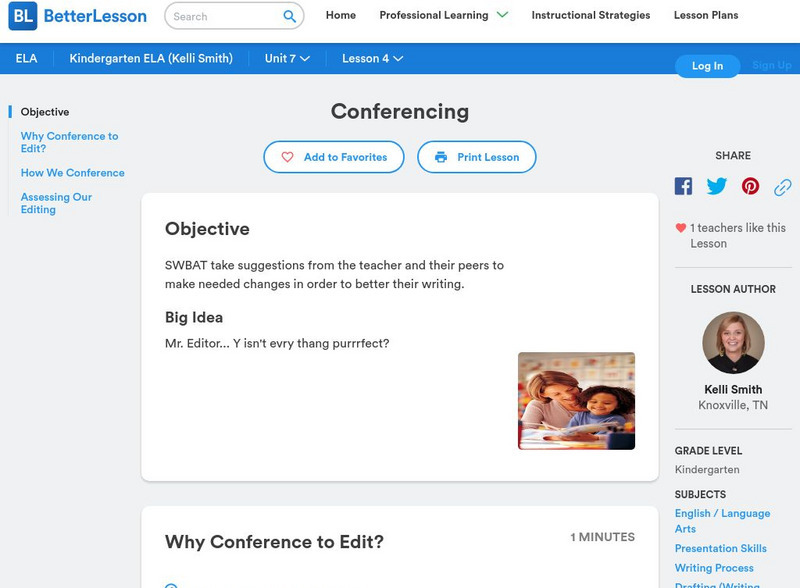
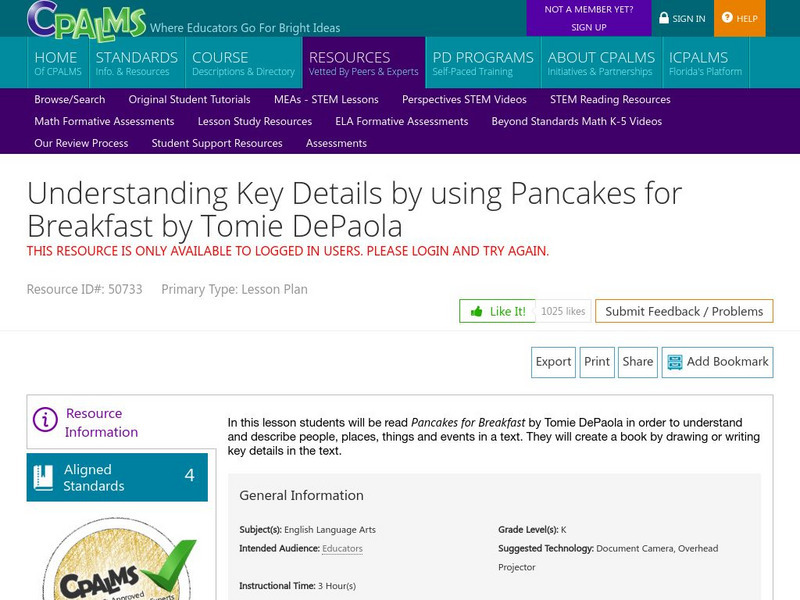

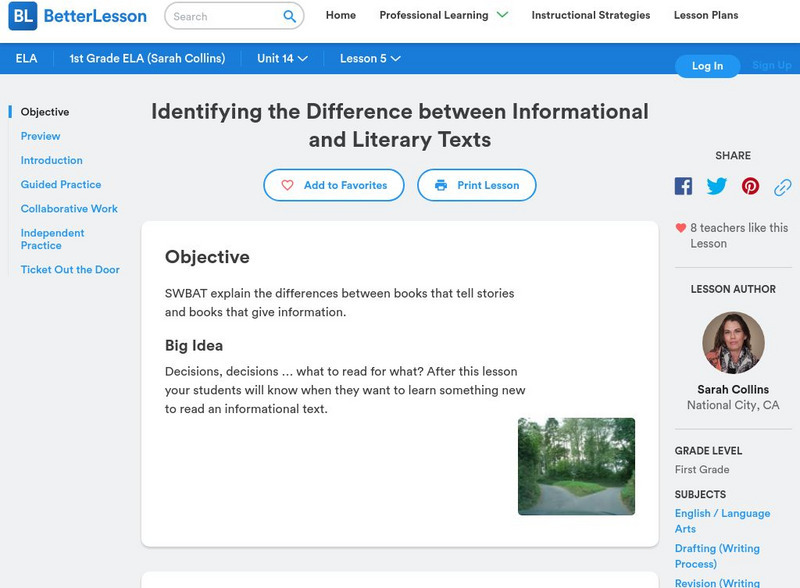
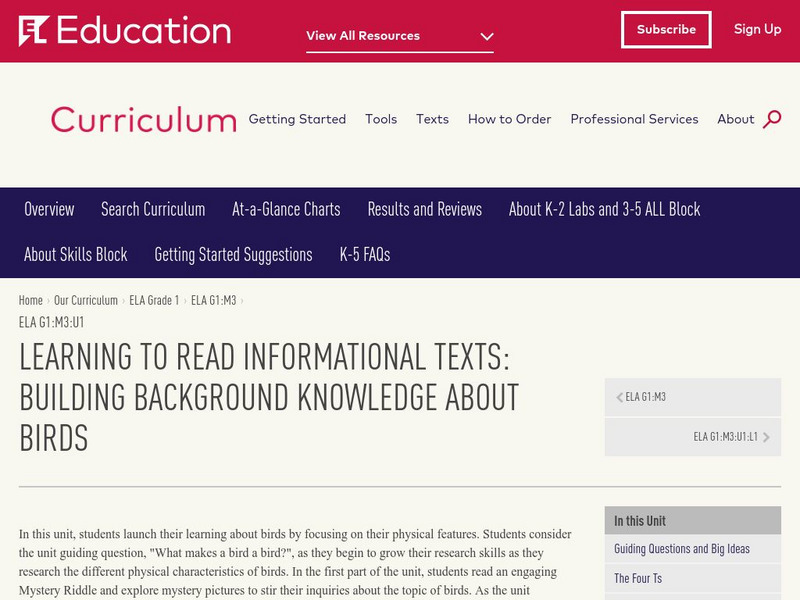
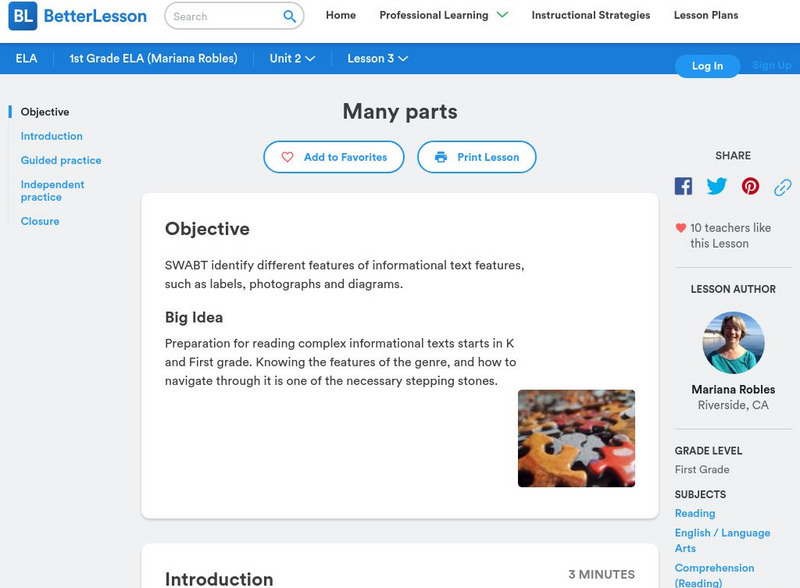


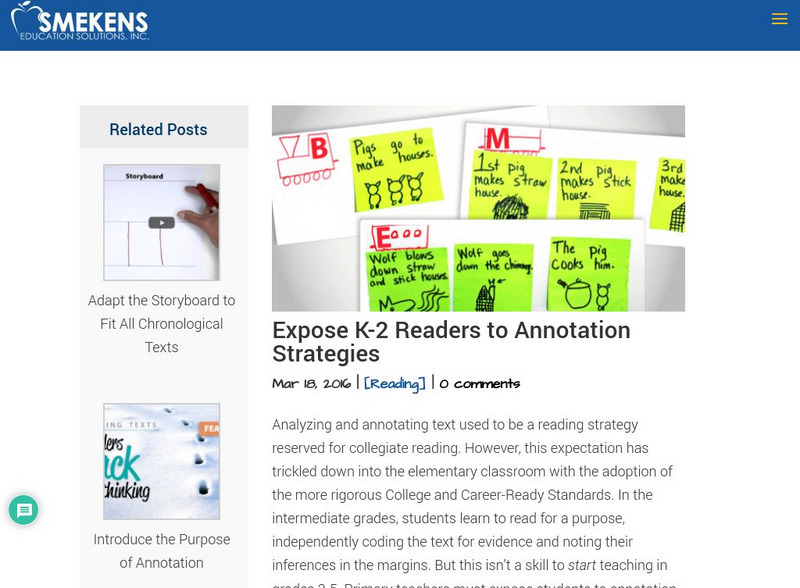
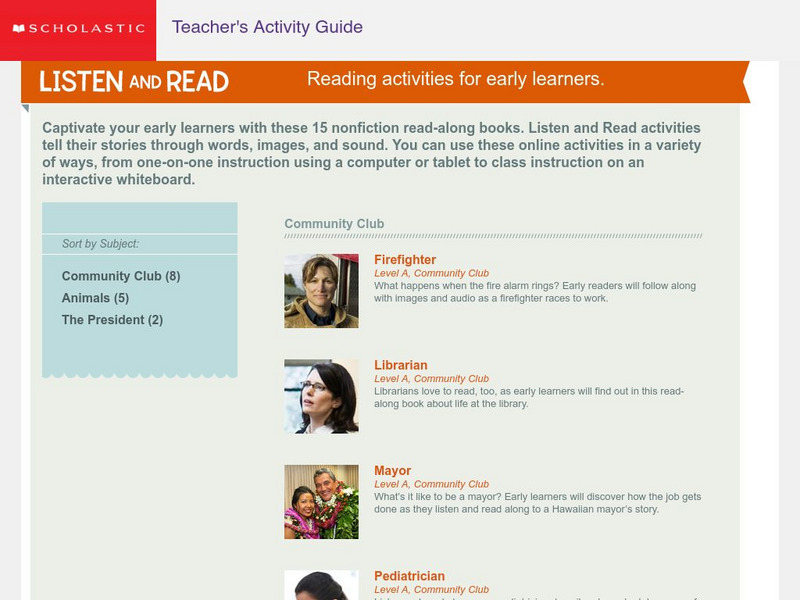
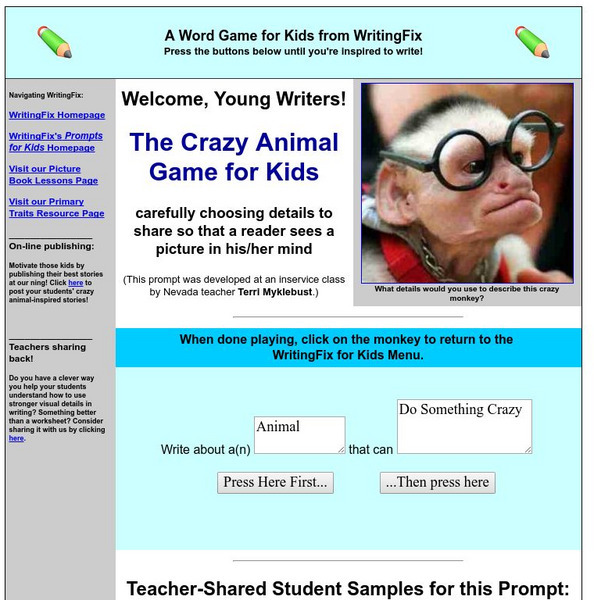



![Florida Center for Reading Research: Expository Fact Strip [Pdf] Lesson Plan Florida Center for Reading Research: Expository Fact Strip [Pdf] Lesson Plan](https://content.lessonplanet.com/knovation/original/101726-6e9433c83ac2e2bbad9c1c7411098251.jpg?1661786954)


